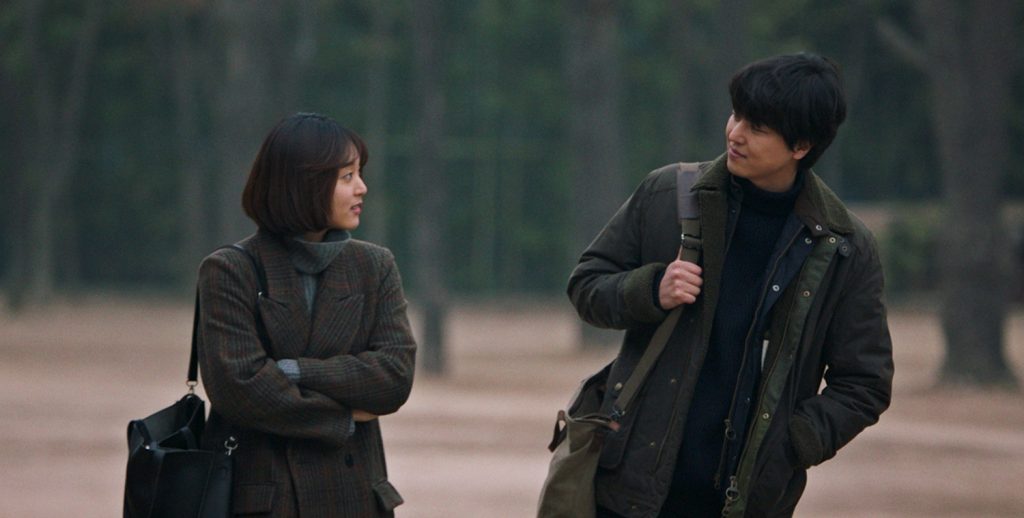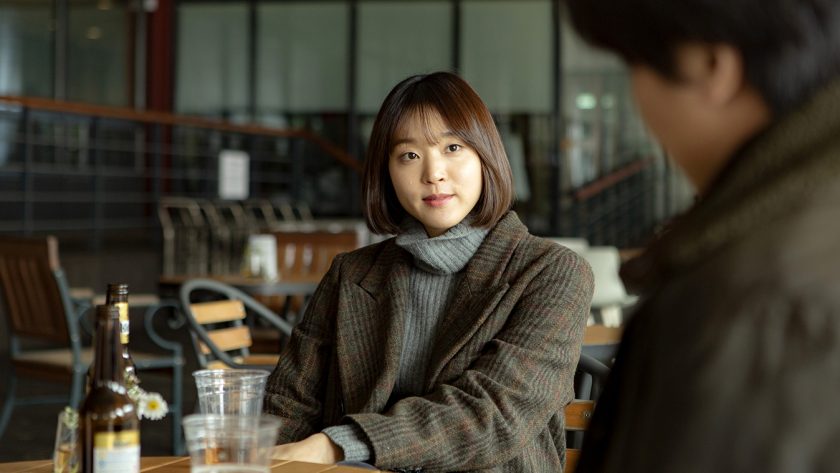Madeline Choi reviews Kim Jong Kwan’s anthology exploration of grief and artistic creation.
A meditation on modern loneliness, director and screenwriter Kim Jong Kwan’s character-driven Shades of the Heart weaves together the stories of five people experiencing loss and grief. The film’s protagonist Chang Seok (Yeon Woo Jin) guides the audience through these four stand-alone stories and slowly, layer by layer, uncovers the tragic loss of his own daughter and his subsequent failed marriage. The original Korean title literally translates to ‘A place where there is no one’, but the film adopts the English title of ‘Shades of the Heart’. When asked about the change in title, the director commented that whilst the Korean title laments on the emptiness in people’s lives, the English title refers to the shadows of life. Rather than associating loneliness with emptiness, the film centralizes the five characters’ loneliness with the gray area between light and darkness.
The loss of a lover, the loss of children, the loss of memories, and the loss of one’s self — the other four characters discuss their grief while Chang Seok calmly listens. At first glance, Chang Seok acts as a listener to the exposition of pain and loss whilst writing his new novel. The film’s anthology storytelling alternates between heavy dialogue and silence to portray the different stages of grief. The long walk and quiet dialogue accompanying the second story tells the loss of Yoo Jin’s (Yoon Hye Ri) unborn baby and breakup with her long-distance boyfriend. Chang Seok and Yoo Jin embark on a long walk through the forest, seemingly discussing Chang Seok’s new book contract. However, the film’s sound design slowly uncovers Yoo Jin’s pain as she smokes the last of her ex-boyfriend’s Indonesian cigarettes. The silence that filled the scene earlier is replaced with the sharp crackling of her cigarettes against the backdrop of the winter sunset. The frame is solely illuminated by their cigarettes and sunset, the camera lingers on the two characters in complete silence. On the other hand, the fourth and final character introduced is a bartender, Joo Eun (Lee Joo Young) on her final day at work. Offering to trade a story from Chang Seok’s memory for a free drink, Joo Eun reveals that her car accident had wiped her memories completely, she has been left with no memories of her own. Joo Eun, having listened to countless memories told by her customers, records her impressions of these very customers through her poetry. To this, Chang Seok calmly listens without any sign of judgment. Through the final story, the question of Chang Seok’s fixation with these strangers’ stories of loss remains.

Yeon Woo Jin’s performance as Chang Seok is a definite highlight of the film. The performances, even when concerned with darker and more extreme emotions, are generally very collected and calm. Yeon Woo Jin, in a sense, plays two roles within the same character: one of a listener and one of a victim to loss, himself. The five stories all share the similarity in the almost monologue-esque one-sided dialogue between Chang Seok and the individual characters, who are all going through grief. When listening to these stories, Chang Seok conveys a sense of hidden sadness through his low register and empty eyes. However, it is later revealed that Chang Seok himself returned back to Seoul after seven years due to the death of his young daughter. Through a dream sequence, the audience sees Chang Seok in a public telephone booth, on the phone with his ex-wife, who is back in London. The discarded public telephone booth, a reference to the film’s Korean title of empty spaces, accompanies the explosion of uncontrollable sadness as Yeon Woo Jin delivers a raw and vulnerable emotional breakdown. Chang Seok wakes up from this dream, tears rolling down his face as he begins his mundane morning with the remainder of his loss.
The slow-paced, stark portrayal of loneliness is accompanied by the film’s beautiful cinematography. Like the emotional grey area between light and dark, the film showcases a time between dusk and dawn through the four stories. Regardless of the characters’ emotions, the sun still rises and sets throughout the film. Moreover, director Kim Jong Kwan frequently uses parallels and call-backs throughout the somber film. The second story briefly introduces the audience to a slightly unhinged woman as she tries to grab Chang Seok and Yoo Jin by their arms. She screams “Don’t let go of my hand if you don’t want to get lost!”. The last shot of the film calls back to this woman as the camera lingers on the past memory of her and her young son as she repeats the very same words. Director Kim Jong Kwan constantly reminds the audience of the pain of loss and the long-term effects it has on one’s relationships with others and oneself. When asked if the feature was an autobiographical one, the director commented that the story was constructed truthfully and authentically through a collection of fiction.
Despite portraying very specific, personal stories, Shades of the Heart successfully touches on the universal state of loneliness. The intricate sound design and beautiful cinematography support the main themes of the film through its slow-paced runtime. The complex yet realistic weaving of the four stories with touches of Chang Seok’s own loss provide a heartbreaking modern take on grief.
Watch the trailer for Shades of the Heart here:





I love ur take on the role of Chang Seok! I also like how you described the scene of Chang Seok calling his wife in the telephone booth – can’t wait to watch it!
I found particularly extraordinary (in its beauty and truth – they often go hand-in-hand) the initial scene, even before the title and initial credits. I think it depicts perfectly how the human mind feels in an ageing body. The shot of his mother’s hand conveys so much.